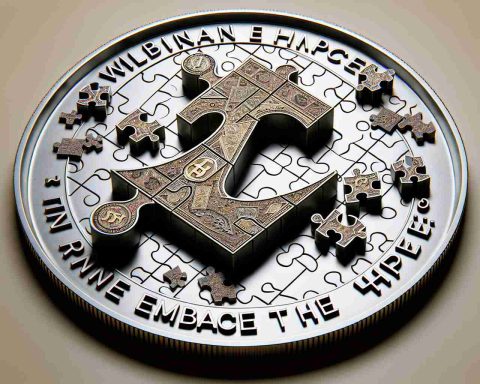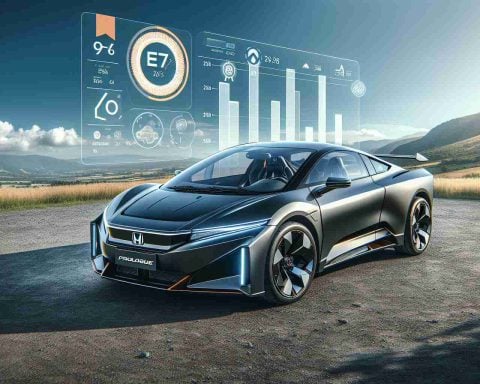- Porsche faces internal and external challenges, leading to workforce reductions amid slow electric vehicle sales and global economic uncertainties.
- The company invests €800 million to expand its fuel and hybrid vehicle lineup, diverging from the industry trend towards electrification.
- Projected annual profit margins have decreased to 10-12%, below the long-term goal of 20%, due to rising costs and changing market dynamics.
- Taycan electric vehicle sales dropped by 49% in 2024, resulting in reduced production shifts at the Zuffenhausen plant.
- Porsche avoids forced layoffs until 2030 following an agreement with IG Metall, opting for voluntary departures and early retirements instead.
- Workforce changes at Porsche reflect similar trends across the Volkswagen Group and its brands, including Audi, facing falling sales.
- Porsche balances tradition and innovation, adapting to the evolving automotive landscape while exploring an electrified future.
Porsche finds itself at a crossroads, grappling with both internal pressures and external forces as it navigates the complexities of the modern automotive landscape. The revered brand attributes a recent decision to trim its workforce to sluggish electric vehicle sales and the tumultuous geopolitical and economic climate. In an assertive pivot, Porsche plans to pump €800 million into expanding its lineup of fuel and hybrid vehicles, a move that seems countercurrent in an industry racing towards electric futures.
As Porsche braces for increased costs, its projected profit margins for this year have slumped to a sobering 10-12%, a far cry from the ambitious long-term target of 20%. The once-reigning Taycan, an electric marvel, saw its sales plummet by 49% in 2024, prompting a reduction in shifts at the Zuffenhausen production plant.
Simultaneously, the broader Volkswagen Group context reveals parallel struggles; a recent agreement with Germany’s IG Metall union has spared Porsche from enforced layoffs until 2030. Instead, the brand will achieve reductions through voluntary departures and early retirements, offering attractive pre-retirement benefits to those aged 55 and over.
Porsche’s workforce adjustments echo a wider trend within the Volkswagen Group, with Audi also unveiling plans to negotiate potential job cuts amid falling sales. The overarching narrative is clear: as the automotive world shifts and sways, only those who adapt can steer through the storm unscathed.
The takeaway? Porsche is not just reacting but recalibrating—anchoring itself in familiar markets while cautiously steering towards an electrified future. Such transformations highlight the delicate dance between innovation and tradition, a dance that is reshaping the road ahead for automotive giants worldwide.
Why Porsche’s Bold Strategy Could Redefine the Automotive Industry
How-To Steps & Life Hacks: Navigating a Career in an Evolving Automotive Industry
1. Stay Informed: The automotive industry is rapidly changing. Keeping up with trends, such as the shift to electric vehicles and sustainability initiatives, is crucial. Subscribe to industry newsletters and join professional forums for regular updates.
2. Skill Development: Focus on acquiring technical skills related to electric vehicles, as well as traditional automotive engineering. Online courses from platforms like Coursera or Udacity can expand your knowledge in EV technology.
3. Networking: Connect with professionals on LinkedIn or attend industry conferences to learn from peers and understand where the industry is headed.
4. Embrace Flexibility: As companies like Porsche pivot, be open to roles that might not have existed before, such as electric vehicle infrastructure planning or sustainable materials sourcing.
Real-World Use Cases: Porsche’s Role in a Hybrid Future
Porsche’s shift towards hybrid and fuel technologies showcases a trend seen across the automotive landscape—balancing innovation with market reality. Their Panamera and Cayenne hybrids have been well-received, allowing customers to enjoy the benefits of reduced emissions while maintaining performance. This approach may appeal to regions with lagging electric infrastructure.
Market Forecasts & Industry Trends
The global automotive industry continues to project robust growth for electric vehicles (EVs), albeit with regional variations. According to the International Energy Agency (IEA), electric car sales surpassed 10 million in 2022 and are expected to continue growing. However, Porsche’s bet on hybrid vehicles underlines an emerging trend: diversifying energy sources until EV infrastructure is universally viable.
Reviews & Comparisons
In comparison to its peers like Tesla or BMW, Porsche struggles with EV infrastructure and market penetration for electric vehicles. Reviews commend Tesla’s Supercharger network and the advanced self-driving tech of its vehicles, whereas BMW finds success with its i-series vehicles in the premium market. Porsche’s hybrid offerings provide a middle ground for performance-oriented drivers not ready to fully embrace electric.
Controversies & Limitations
The decision to downscale its EV ambitions could position Porsche as resistant to change. Climate activists argue that investing in hybrid could slow the necessary transition to full electrification. This stance can affect Porsche’s reputation amid increased environmental consciousness among consumers.
Features, Specs & Pricing
Porsche’s hybrid vehicles offer high performance with the Panamera 4 E-Hybrid delivering 462 hp and a potential electric range of about 30 miles. Pricing is premium, starting around €98,000, targeting affluent consumers wanting luxury with lower emissions.
Security & Sustainability
As Porsche invests in hybrid, the sustainability narrative pivots to carbon offset initiatives and partnerships in renewable energy to balance the environmental impact. The automotive sector faces increasing scrutiny on lifecycle emissions from production to end-of-life recycling.
Insights & Predictions
Experts predict that as technology and infrastructure improve, Porsche may revisit its EV strategy. Emerging markets in Asia and Europe might see quicker adoption due to governmental incentives and rapid infrastructure development.
Pros & Cons Overview
– Pros: Diversifies offerings to appeal to traditionalists and hybrid enthusiasts, maintains brand identity focused on performance, and manages current market limitations.
– Cons: Potential misalignment with global electrification trends, slower adaptation could hurt future competitiveness.
Actionable Recommendations & Quick Tips
1. Leverage Hybrids: For consumers, hybrids offer a middle ground, offering lower emissions with minimal range anxiety—suitable for areas with limited charging infrastructure.
2. Monitor Deals: As Porsche offers pre-retirement options, employees can maximize benefits by consulting HR for personalized retirement planning.
3. Consider Market Trends: Embrace hybrid or traditional vehicles if located in regions with slower EV adoption or where charging infrastructure is developing.
For more detailed insights, visit the Porsche official website or Volkswagen Group portal for the latest updates and initiatives.


















